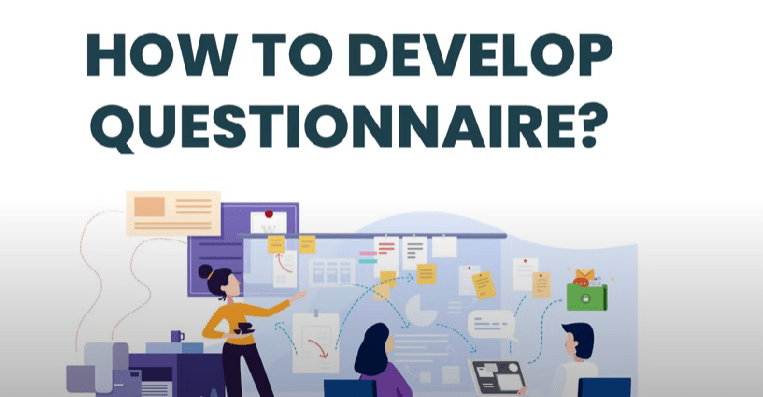Starting to write a PhD thesis can be exciting but also a bit tricky. This blog will give you three really helpful Tips for PhD Thesis Writing in 2023-24. These are basically Guidelines for PhD Thesis writing that will make things easier for you. It doesn’t matter if you’ve just begun or you’re in the middle of your research – these tips will help you manage your thesis well. We’ll also talk about something important called Citation Compliance. This means making sure you give credit to other people’s work in the right way. We’ll cover citation compliance, APA, Harvard, and Foot Note, which are like different sets of rules for how to do this. They’re like road signs that guide you in writing your thesis. So, let’s get started and learn these important things for your PhD thesis!
Now before diving into the game-changing tips, let us know the guidelines for PhD thesis writing so that we can really learn the game-changing tips.
i) Guidelines for PhD Thesis Writing Clear Structure: Make sure your thesis has a clear beginning, middle, and end. Begin with an introduction, then move on to the main body, and finish with a conclusion.
ii) Research Well: Gather a lot of information about your topic. Read books, articles, and talk to experts. This helps you understand your subject better.
iii) Plan Your Time: Set aside specific times for writing and researching. This helps you stay organized and make steady progress.
iv) Use Simple Language: Don’t use complicated words just to sound smart. Explain your ideas in clear and simple words.
v) Check Grammar and Spelling: Mistakes can make your work hard to understand. Use a spell-checker and ask someone to proofread your work.
Tip 1: Incorporate Neuro-Linguistic Programming (NLP) Techniques
# Importance of Incorporating Neuro-Linguistic Programming (NLP) Techniques
Neuro-Linguistic Programming (NLP) is a set of psychological strategies that can be applied to various aspects of life, including academic pursuits like PhD thesis writing. By incorporating these tips for PhD thesis writing, researchers can:
a) Enhance Focus and Concentration:
i) NLP provides tools to improve concentration by helping individuals understand their personal triggers for distraction.
ii) Through techniques like anchoring, one can create mental cues to easily enter a focused state of mind conducive to writing.
b) Overcome Procrastination and Writer’s Block:
i) NLP offers methods to reframe negative thought patterns and beliefs that contribute to procrastination and writer’s block.
ii) By changing the way one thinks about the writing process, researchers can increase productivity and creativity.
c) Improve Time Management and Productivity:
i) NLP techniques, such as timeline therapy, can be used to set specific goals and deadlines.
ii) This helps researchers manage their time effectively and stay on track with their writing schedule.
d) Boost Confidence and Motivation:
i) Through techniques like modelling, researchers can study and emulate the behaviours and thought patterns of successful writers.
ii) This can lead to increased confidence and motivation in approaching and completing the thesis.
# How PhD Researchers Can Use It to Improve Their PhD Thesis Writing
i) Learn and Practice NLP Techniques: Begin by familiarizing yourself with basic NLP principles and techniques. Books, online courses, and workshops are among the various materials accessible.
ii) Apply Anchoring for Focus: Identify specific cues or actions that can trigger a focused state of mind. For example, you might associate a particular gesture or ritual with entering a writing flow.
iii) Set Clear Goals with Timeline Therapy: Use timeline therapy techniques to set realistic milestones and deadlines for your thesis. This methodical technique might assist you in efficiently managing your time.
iv) Practice Modeling Successful Writers: Identify accomplished authors or researchers in your field and study their writing habits and strategies. Emulate their techniques that resonate with you.
Tip 2: Experiment with Binaural Beats for Focus and Productivity
# Importance of Experimenting with Binaural Beats for Focus and Productivity
Binaural beats are an auditory phenomenon that involves playing two slightly different frequencies in each ear. This creates a perceived third frequency, which can have various effects on brainwave activity. For PhD researchers, incorporating binaural beats can provide the following benefits:
# How PhD Researchers Can Use It to Improve Their PhD Thesis Writing
i) Select Appropriate Binaural Beat Frequencies:
Research the different frequencies and their associated effects.
For focused writing, frequencies in the alpha and beta range are often recommended.
ii) Choose Comfortable Headphones:
Invest in a good pair of headphones for optimal binaural beat experiences.
This ensures that the frequencies are delivered effectively to each ear.
iii) Bonus Section: Citation Compliance
Citation compliance is like giving credit for someone else’s work. It shows where we got information from. It helps others find the same information. It makes our work more trustworthy. It prevents plagiarism, which is copying without permission. Teachers and experts like it when we do it right. It’s like saying “thank you” to the people who did the original work. So, always remember to cite sources when we use them!
a) APA is a style with specific ways to write author names and dates.
b) Harvard is another style, which also includes the author’s name and date.
c) Footnote is a style where we put numbers in the text and write details at the bottom.
d) These rules help others find the original source of information.
It’s like using different recipes for cooking – they all make a tasty meal, but with slight differences.
Choosing the right style depends on what our teacher or boss asks for.
Tip 3: Apply Design Thinking to Research Methodology
# Importance of Applying Design Thinking to Research Methodology
Design Thinking is a problem-solving approach that focuses on empathy, ideation, and prototyping to find innovative solutions. When applied to research methodology, it can offer several advantages for PhD researchers:
a) Empathize with End Users: By adopting a user-centred approach, researchers gain a deeper understanding of the needs and perspectives of the people who will engage with their research. This leads to more relevant and impactful findings.
b) Define Research Questions Clearly: Design Thinking encourages precise articulation of research questions, ensuring they are focused and actionable. This clarity guides the entire research process.
c) Generate Innovative Ideas and Approaches: Through ideation, researchers explore a wide range of creative possibilities for data collection, analysis, and interpretation. This can lead to novel insights and methodologies.
d) Prototype and Test Research Methods: Researchers can create prototypes of their research methods or data collection instruments to refine and improve them before implementation. This helps identify and rectify potential issues early on.
e) Iterate and Refine the Research Process: Design Thinking promotes an iterative approach, allowing researchers to refine their methodology based on ongoing feedback and insights. This leads to a more robust and effective research process.
# How PhD Researchers Can Use It to Improve Their PhD Thesis Writing
a) Begin by understanding the perspective and needs of your target audience, whether it’s fellow researchers, practitioners, or the general public.
b) Clearly state the objectives of your research. What do you want to achieve? How will it benefit your field or society?
c) Engage in brainstorming sessions to generate a wide range of research methods and approaches. Encourage creativity and exploration.
e) Create prototypes of surveys, interview guides, or experimental setups. Test them with a small sample to identify and address any potential issues.
f) Gather feedback from peers, advisors, or pilot studies. Use this input to refine and improve your research methodology.
Conclusion
In the end, these three special tips for PhD thesis writing in 2023-24, along with the suggested guidelines, are here to help you. They show you how to manage your thesis well. Also, making sure to cite your sources correctly using formats like citation compliance, APA, Harvard, and Footnote is really important for your thesis to be trustworthy and organized. These strategies are helpful tools, not strict rules. They can be adjusted to fit your own way of doing research and writing. So, use them to make your PhD thesis strong and effective. Keep up the good work!
Phdthesis.in is an online platform that provides PhD students with a range of services to help them with their thesis writing. The platform offers a thesis formatting service that ensures the final document is academically compliant and presented in the format specified by the university. Additionally, the platform provides an online Ph.D. thesis evaluation system that allows professors to upload and manage theses. If you need any help with your thesis, you can email the platform at consulting@phdthesis.in.
FAQs
1. How can I make my PhD life easier?
Ans. Prioritize time management and seek support from peers and advisors.
2. How can I be a better PhD student?
Ans. Maintain your curiosity, ask questions, and be open to learning from a variety of sources.
3. What’s the hardest part about a PhD?
Ans. Balancing research, writing, and personal life demands can be one of the most challenging aspects of pursuing a PhD.









